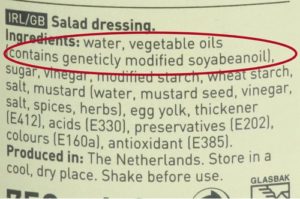
 The U.S. has long opposed a guidance document from the Codex Alimentarius Commission (made up of the world’s food safety agencies) on the labeling of genetically engineered ingredients. But today, at the annual summit in Geneva, more than 100 countries, including the U.S., achieved consensus on the guidance after two decades.
The U.S. has long opposed a guidance document from the Codex Alimentarius Commission (made up of the world’s food safety agencies) on the labeling of genetically engineered ingredients. But today, at the annual summit in Geneva, more than 100 countries, including the U.S., achieved consensus on the guidance after two decades.
What does this mean?
For starters, countries that implement GE food labeling will not face the threat of legal challenges from the World Trade Organization. Peru is one example of a country that recently established labeling rules. The new Codex agreement protects a country’s right to mandate labeling.
Dr. Michael Hansen, senior scientist at Consumers Union of the United States, says: “We are particularly pleased that the new guidance recognizes that GM labeling is justified as a tool for post market monitoring. This is one of the key reasons we want all GM foods to be required to be labeled — so that if consumers eat modified foods, they will be able to know and report to regulators if they have an allergic or other adverse reaction.”
We think the agreement falls way short by not endorsing mandatory GE food labeling. Still, this is an important global event that protects a country’s right to support consumer choice. Getting the U.S. to move in this direction remains a big challenge.
See Consumers International’s press release for more background
